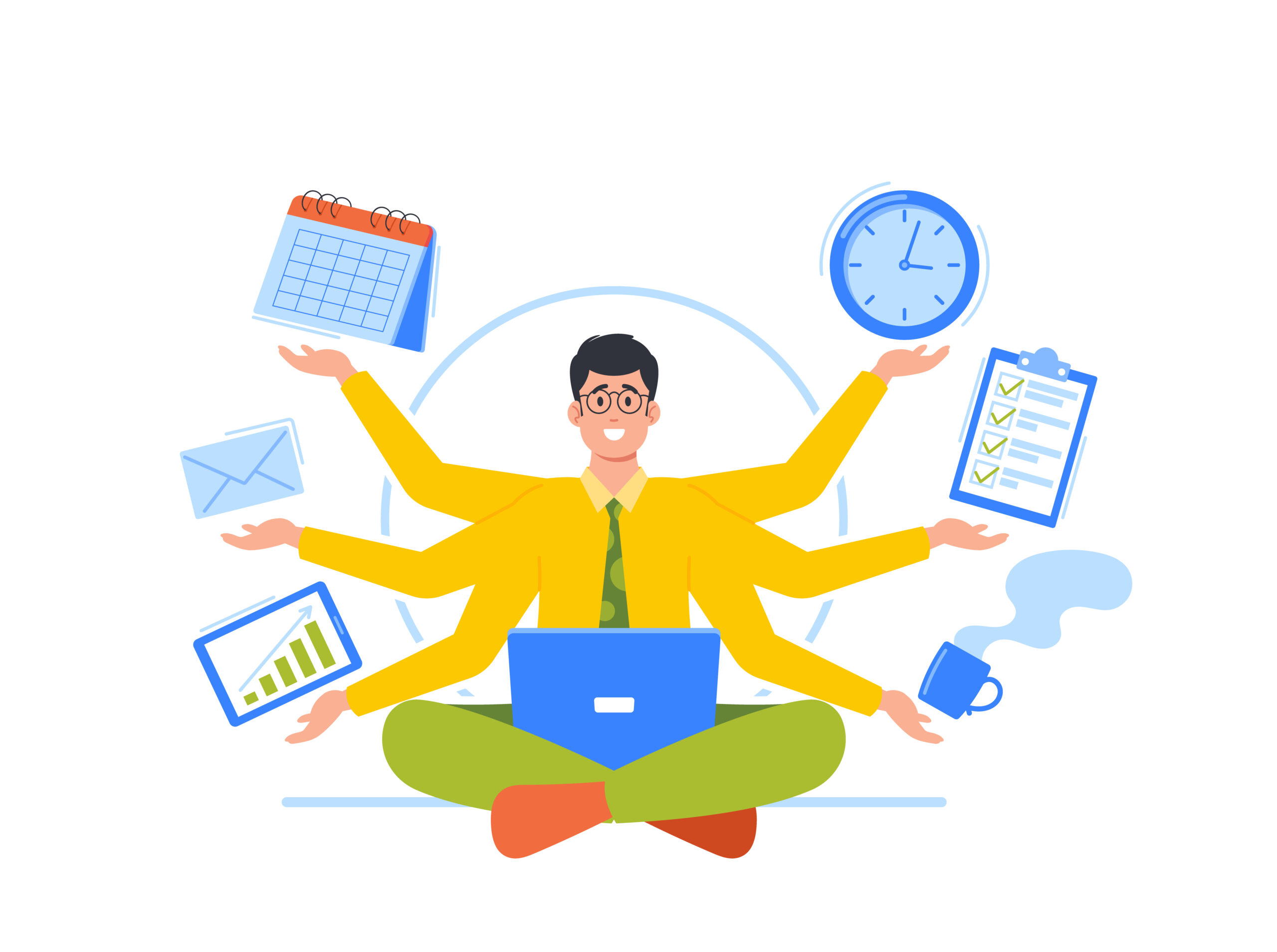Workplaces are environments where diverse personalities, work styles, and backgrounds come together, ideally promoting collaboration, creativity, and professional growth. However, not every colleague fosters this atmosphere. Unfortunately, toxic colleagues can create an environment filled with stress, negativity, and even conflict, affecting everyone around them. Learning how to recognize toxic behavior and manage it effectively is crucial for maintaining your productivity, mental health, and overall job satisfaction.
This blog will provide practical strategies to handle toxic colleagues and highlight when it might be time to consider leaving a toxic workplace, understanding Unprofessional Behavior in the Workplace
How to Deal with Toxic Colleagues
Navigating workplace dynamics can be challenging, especially when dealing with toxic individuals. Their behaviors can drain your energy, derail your focus, and make daily work a struggle. Fortunately, there are steps you can take to mitigate their influence. Here’s a guide to protecting yourself and your productivity when working alongside toxic colleagues:
1. Set Clear Boundaries
When dealing with toxic colleagues, one of the most important strategies is to set clear and firm boundaries. Toxic individuals often thrive on pushing limits—whether it’s dumping work on others, crossing personal lines, or engaging in passive-aggressive behavior. To counter this, you need to communicate your boundaries assertively and confidently. If a toxic colleague is trying to assign tasks to you that aren’t your responsibility, politely but firmly explain your workload and why you cannot take on additional work.
For example, if they often ask for help at the last minute, you could respond with, “I’d love to assist, but I already have commitments that need my attention.”
Why It Works:
Setting boundaries clearly and early on prevents toxic colleagues from overstepping or taking advantage of you. Boundaries provide you with control over your work and responsibilities, reducing stress and fostering respect. This strategy forces them to respect your time and space while allowing you to maintain your personal and professional integrity.
2. Focus on Your Work
 It can be tempting to get sucked into the drama that toxic colleagues often create. Whether it’s gossip, complaining, or attempts to derail your focus, engaging in their negative behavior is a sure way to lose productivity and feel mentally exhausted. Instead, focus on your tasks and goals. When a toxic colleague tries to draw you into their web, redirect the conversation to your work or politely disengage.
It can be tempting to get sucked into the drama that toxic colleagues often create. Whether it’s gossip, complaining, or attempts to derail your focus, engaging in their negative behavior is a sure way to lose productivity and feel mentally exhausted. Instead, focus on your tasks and goals. When a toxic colleague tries to draw you into their web, redirect the conversation to your work or politely disengage.
For instance, if someone starts complaining about management or other team members, you can simply say, “I need to focus on this project right now, but I hope things improve.”
Why It Works:
Focusing on your work helps you avoid unnecessary drama and stay productive. By keeping your attention on your own tasks, you prevent toxic colleagues from draining your energy and emotions. Over time, this approach reinforces your commitment to maintaining a positive and productive environment, even when surrounded by negativity.
3. Limit Interaction Where Possible
Minimizing unnecessary interaction with toxic colleagues is another effective way to protect your mental well-being. While it may be impossible to avoid them entirely, you can limit contact to necessary professional exchanges. This could mean excusing yourself from casual conversations, avoiding social interactions with them, or even requesting to work on separate projects if possible.
For example, if you’re at a team meeting and your toxic colleague is dominating the discussion in a negative way, try to steer the conversation back to the agenda or excuse yourself once your part is complete.
Why It Works:
Reducing your exposure to toxic behavior is critical for maintaining a positive mindset. The less time you spend engaging with toxic individuals, the less power they have to influence your mood, stress levels, or productivity. By controlling how and when you interact with them, you safeguard your mental energy and emotional resilience.
4. Document Everything
If toxic behavior starts to affect your work, one of the best protections you can have is thorough documentation. Keep detailed records of incidents that directly impact your ability to do your job. This could include emails, meeting notes, or specific actions that demonstrate toxic behavior. Make sure your records are factual and neutral, focusing on the behavior itself and how it affects your work.
For example, if a colleague constantly undermines you in meetings, document the date, time, and specific comments they made. If necessary, gather supporting evidence from other colleagues who witnessed the behavior.
Why It Works:
Having a record of toxic incidents provides you with evidence should the situation escalate. If you ever need to involve HR or management, clear documentation helps to substantiate your concerns. Additionally, keeping records ensures that your claims are taken seriously and that you are protected from any potential fallout.
5. Seek Support from Management or HR

If toxic behavior becomes intolerable and starts affecting the broader work environment, it’s time to escalate the issue. Reach out to your manager or HR department and explain the situation, providing the documentation you’ve collected. Ensure that your approach is professional, focusing on the impact the toxic behavior is having on your ability to perform your job, rather than making it a personal attack.
For instance, you might say, “I’ve noticed that X’s behavior is affecting our team’s
productivity and creating a difficult work environment. I’d like to discuss possible solutions to address this issue.”
Why It Works:
Escalating issues to management or HR can bring an impartial perspective and introduce formal processes to mediate or resolve the situation. HR may offer mediation, training, or even disciplinary action if necessary. Their intervention can help restore a healthier workplace environment and show that your company takes these matters seriously.
6. Don’t Take It Personally
One of the hardest but most important things to remember when dealing with toxic colleagues is that their behavior is a reflection of them, not you. Toxic individuals often project their insecurities, frustrations, or unresolved personal issues onto others. Recognizing this can help you maintain emotional distance and avoid internalizing their negativity.
When a toxic colleague criticizes you or tries to sabotage your work, remind yourself, “This is about their issues, not my worth or abilities.”
Why It Works:
When you stop taking toxic behavior personally, you protect your self-esteem and emotional well-being. This mental shift helps you view their behavior objectively, which reduces its emotional impact and allows you to remain calm and professional. You become better equipped to manage difficult situations without letting them affect your inner peace or job satisfaction.
When to Consider Leaving
 While many toxic situations can be managed, there are instances when the toxicity in the workplace becomes overwhelming, and no amount of strategy can resolve it. If you experience any of the following red flags, it might be time to consider leaving for a healthier work environment:
While many toxic situations can be managed, there are instances when the toxicity in the workplace becomes overwhelming, and no amount of strategy can resolve it. If you experience any of the following red flags, it might be time to consider leaving for a healthier work environment:
Your Mental Health Is Suffering: If the stress and negativity are impacting your emotional and mental well-being beyond work hours, it’s a clear sign that the toxicity is taking a toll on your overall health. If you find yourself constantly anxious, exhausted, or depressed, it may be time to re-evaluate your options.
Your Productivity Is Declining: If the toxic environment is causing you to lose motivation or focus, it can be detrimental to your career progression. A workplace that stifles your ability to succeed and grow is not conducive to your long-term goals.
No Improvement After Intervention: If you’ve reported the toxic behavior to HR or management and no action has been taken, it’s a signal that the company culture may not prioritize addressing toxic environments. In such cases, it’s worth considering whether staying is worth your well-being and professional future.
Conclusion
Dealing with toxic colleagues is never easy, but with the right strategies, you can protect your mental health and maintain your productivity. Whether it’s setting boundaries, limiting interactions, or seeking support from HR, there are ways to effectively manage these difficult relationships. However, it’s important to recognize when the cost of staying in a toxic environment outweighs the benefits. Prioritizing your well-being and seeking a positive, supportive work environment is essential for both your personal happiness and professional success.





 Maintain a healthy diet and exercise routine. Prioritize sleep and rest. Practice relaxation techniques like deep breathing or yoga to alleviate stress. Engage in hobbies and interests outside of work to find joy and relaxation. Seek support from friends, family, or a therapist to talk through your feelings and gain perspective. Practice mindfulness and stress management techniques to stay grounded and calm. Take regular breaks to avoid mental fatigue. Engage in continuous learning and skill development to keep your mind stimulated. Set boundaries to prevent work from encroaching on personal time.
Maintain a healthy diet and exercise routine. Prioritize sleep and rest. Practice relaxation techniques like deep breathing or yoga to alleviate stress. Engage in hobbies and interests outside of work to find joy and relaxation. Seek support from friends, family, or a therapist to talk through your feelings and gain perspective. Practice mindfulness and stress management techniques to stay grounded and calm. Take regular breaks to avoid mental fatigue. Engage in continuous learning and skill development to keep your mind stimulated. Set boundaries to prevent work from encroaching on personal time.











